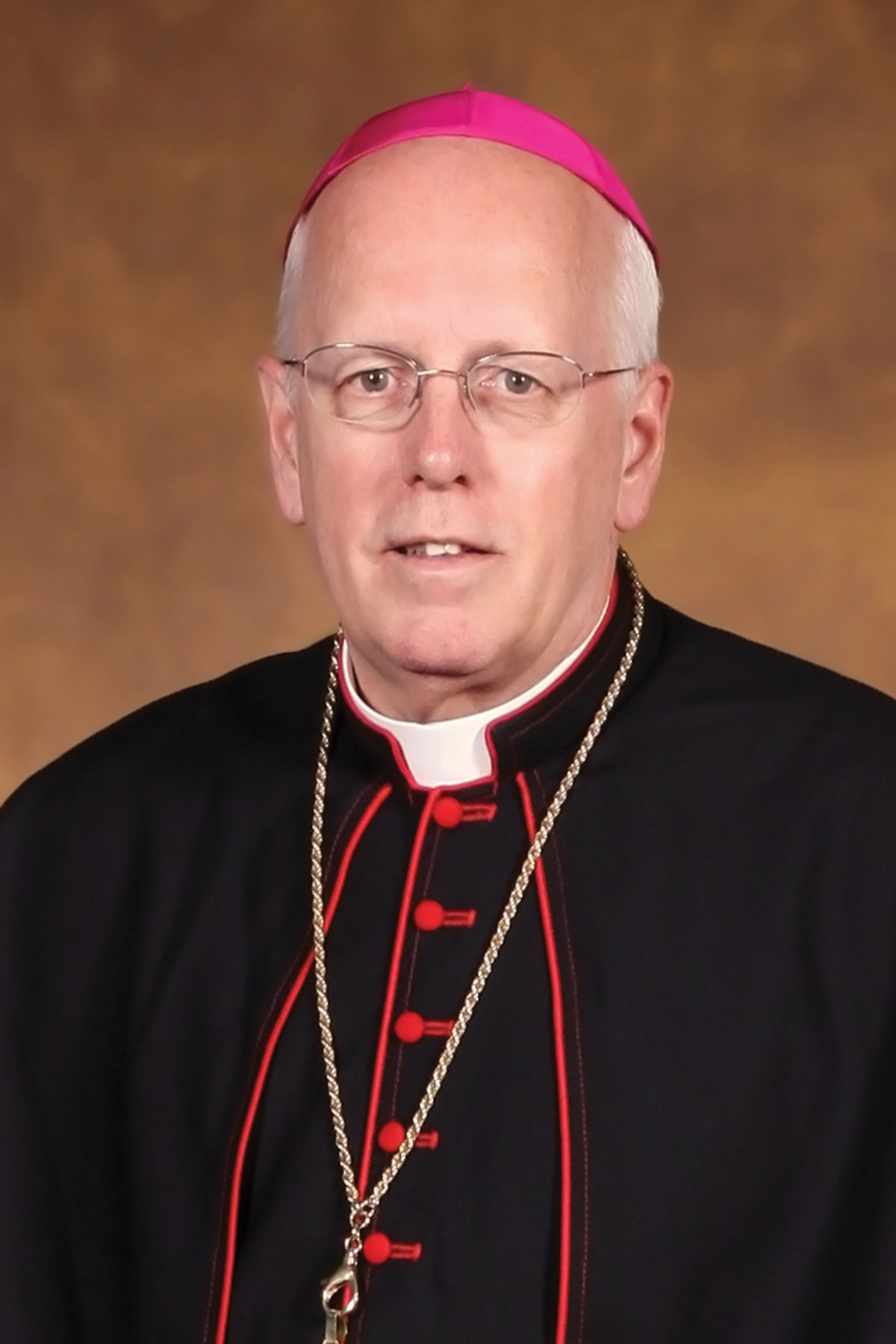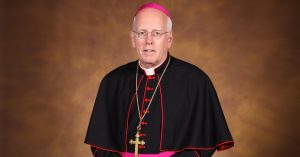
After the Magi had left, the angel of the Lord appeared to Joseph in a dream and said, “Rise and take the child and his mother, flee to Egypt, and stay there until I tell you. Herod is going to search for the child to destroy him. (Mt 2:13)
As we enter a new calendar year with a new Congress, President and State Legislature the issues of immigration, refugees and victims of persecution will be prominently discussed.
This is in part because of the failure of the current federal immigration laws and regulations to halt illegal immigration and the resulting economic, social and fiscal impact this has had on so many individuals and governments. Also of concern is the violence along our nation’s borders that has been perpetrated by criminals who respect neither law nor persons.
Especially worrisome is the horror of human trafficking which destroys the lives of so many children. In addition are the civil wars, religious persecutions and poverty seemingly all over the world which lead so many innocent persons to despair. Likely between the time I write this and you read it more human induced destruction of persons and property will have happened. God rest the souls of those caught in the middle of such evil.
These issues are complex because of the often conflicting moral, economic, social, cultural, regulatory, law enforcement and humanitarian factors. Therefore they should be approached carefully, thoughtfully and in realistic contexts. The Church seeks to offer helpful assistance to governments and a moral voice for the vulnerable in response to this political and personal chaos. An example is National Migration Week from January 8-14. For information visit USCCB.org.
It is inviting to discuss these issues in generalities and impersonally. The fact however is that every immigrant or refugee or victim of persecution is a person gifted by God with life and deserving of being treated with dignity. Further, every immigrant, refugee and victim is born of a family whose bonds stretch across borders and citizenships.
The histories of our state and diocese are filled with heroic stories of those who came from many countries often refugees from religious persecution or as the result of lack of economic opportunities. Many endured significant sacrifice and hardship, but with faith in God and by living Gospel values, they persevered, raised families and helped build the American economy, especially in agriculture, health care and education. We are the beneficiaries of their faith filled efforts.
We also recall that Catholics emigrating from other countries were not always welcomed including here in South Dakota. “No Catholics” was a common sign displayed. That history should make us even more sensitive to the impact of our words and actions and those of our government at all levels who speak in our name.
Pope Emeritus Benedict XVI reminded us of that history when he visited the United States several years ago. He encouraged us “to continue to welcome the immigrants who join your ranks today, to share their joys and hopes, to support them in sorrow and trials, and to help them flourish in their new home. This, indeed, is what your fellow countrymen have done for generations. From the beginning, they have opened their doors to the tired, the poor, the ‘huddled masses yearning to breathe free.’ These are the people whom America has made her own.”
Most people would agree with that intention. Most would also agree that the current immigration system, both the laws that guide who and under what circumstances one can enter the country, and the enforcement of those laws, are not working well enough and in many ways are discriminatory. Comprehensive change is necessary.
The Catholic Bishops in the United States have identified five principles by which to assess public policy and proposals in this complex area. They include:
- People ought to be able to live in safety and provide for themselves and their families in their homeland; widespread poverty and violence too often make this not possible and should be addressed;
- People have the right to migrate to support themselves and their families when they are unable to find work and therefore are unable to support their families at home or are subject to risk of life from the violent subculture;
- Countries have the right and duty to protect and control their borders for the common good;
- Legitimate refugees and asylum seekers escaping violence and persecution should be afforded protection and assistance;
- The human rights and the dignity of all persons including undocumented immigrants, refugees and victims should be respected.
Archbishop Jose Gomez, Archbishop of Los Angeles, Vice President of the US Bishops Conference, when he chaired the Bishops Committee on Migration testified before the House Judiciary Subcommittee on Immigration Policy and Enforcement. He said in part:
“The U.S. Bishops accept the legitimate role of the U.S. government in intercepting unauthorized migrants who attempt to travel in the United States. The U.S. Bishops also believe that by increasing lawful means for migrants to enter, live and work in the United States, law enforcement will be better able to focus upon those who threaten public safety: drug and human traffickers, smugglers, and would-be terrorists. It is our view that comprehensive immigration reform would help restore the rule of law by replacing unauthorized migration flows with meaningful and adequate legal avenues for migration, compatible with both our future labor needs and our ongoing prioritization of family reunification.”
Saint John Paul II reminded us: “The fact that he is a citizen of a particular state does not deprive him of membership to the human family, nor of citizenship in the universal society, the common world-wide fellowship of men.”
I am confident that together as one family under God, we can address with charity and justice the complex issues of immigration, refugees and victims of persecution in ways that protect the rights of all persons and assure the security of our country.
May St. Joseph, who protected our Lord when he as a refugee, an immigrant and a subject of persecution intercede for our country, our leaders, our families and all who are vulnerable.

